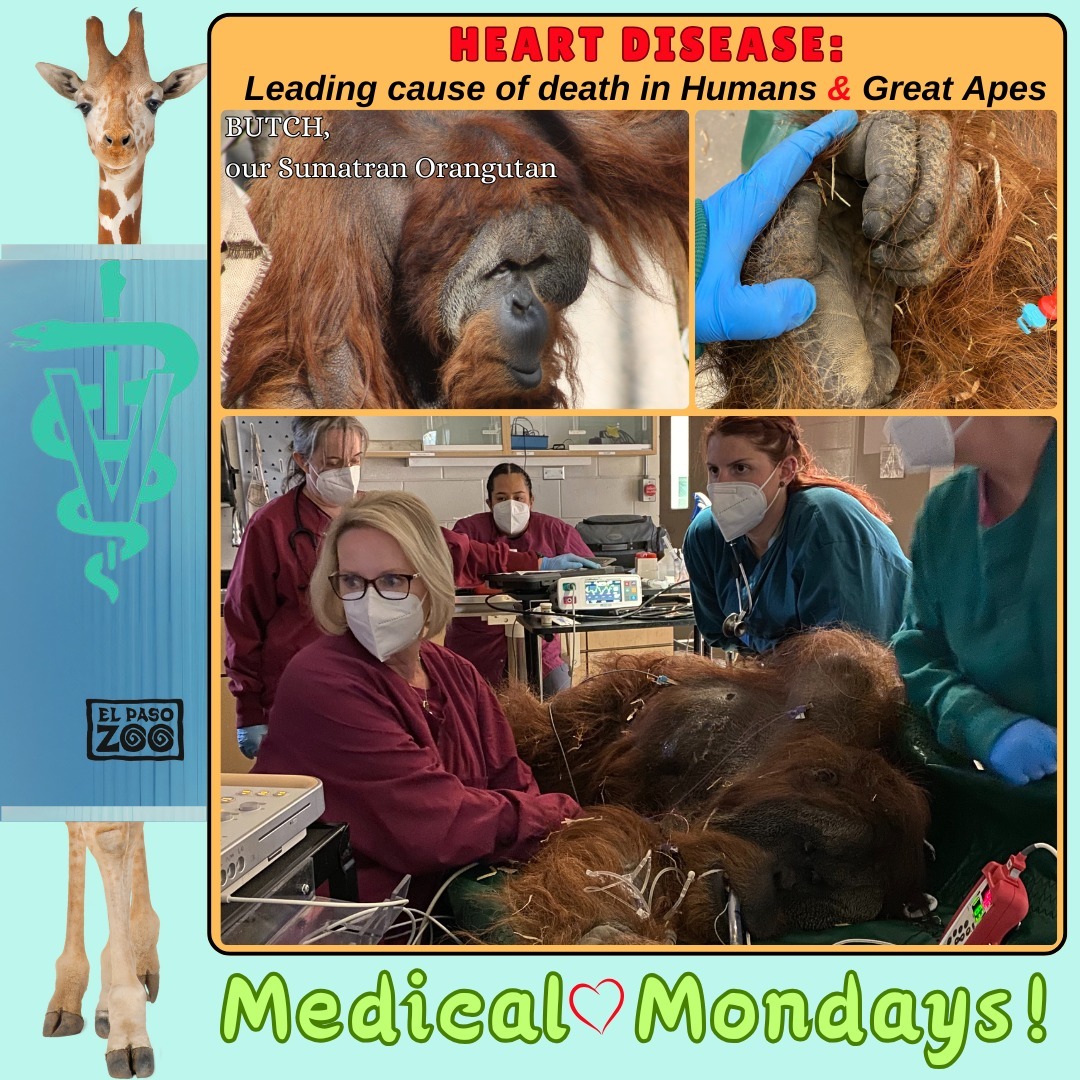- Heart disease as a major concern in both humans and great apes.
- The role of echocardiograms in monitoring ape health.
- The collaborative efforts of the Great Ape Heart Project in improving primate care.
- The practical aspects of performing an echocardiogram on a Sumatran Orangutan.
- The benefits of interdisciplinary studies and data sharing in conservation science.
Heart disease remains the leading cause of death globally, not only in humans but also among the great apes. Recognizing its prevalence across both species, significant scientific efforts have been directed toward understanding and mitigating its impact. The focus of this initiative is the utilization of echocardiograms to evaluate cardiac health in great apes, recognizing the importance of proactive health assessments.
Echocardiograms, often referred to as heart ultrasounds, are instrumental in diagnosing and monitoring heart conditions. They provide a non-invasive method to acquire vital information about heart structures and performance. Dr. Vikki, the chief veterinarian at our facility, emphasizes the necessity of echocardiograms as a crucial element for assessing the health of great apes. Due to the inherent susceptibility of these animals to heart disease, routine monitoring can have a significant role in maintaining their well-being.
The Great Ape Heart Project exemplifies a remarkable collaboration aimed at fostering primate health research. This initiative brings together veterinary and human cardiologists, professional sonographers, and wildlife experts who contribute to this crucial research. The initiative underscores the significance of data sharing and joint expertise in improving the care provided to great apes in captivity.
In an illustrative case, an echocardiogram was conducted on Butch, a 39-year-old Sumatran Orangutan. This non-invasive procedure required the expertise of a professional sonographer associated with the Great Ape Heart Project. Dr. Vikki notes the value of such partnerships as they enable access to cutting-edge techniques and advanced knowledge. The data acquired from Butch’s echocardiogram underwent review by both veterinary and human cardiologists experienced in analyzing heart function in orangutans. This process is critical, as the collaborative evaluation of data allows for a comprehensive understanding of orangutan cardiovascular health.
The task of conducting an echocardiogram on a large primate like Butch poses unique challenges due to their physical size and autonomous nature. However, the success of the procedure provides valuable insights into the comparative aspects of cardiology between humans and their closest relatives in the animal kingdom. Comparing the hand size of Butch to that of the medical staff not only highlights the differences in physicality but also symbolizes the biological commonalities shared with humans.
The multidisciplinary approach embraced by the Great Ape Heart Project offers far-reaching implications for wildlife conservation and zoological management. By compiling extensive datasets through collaborations, there is an opportunity for improvements in health protocols and management practices that can enhance the quality of life for great apes in human care. Interdisciplinary studies and data exchange are key components that support this pragmatic approach toward conservation science.
Importantly, the involvement of a wide network of experts ensures that the latest scientific advances are incorporated in efforts to prevent and manage heart disease in great apes. This holistic approach serves as a model for other conservation initiatives, symbolizing the importance of cross-disciplinary work in addressing complex biological challenges.
*****
Source Description
Welcome to MEDICAL MONDAYS!
Heart disease is the leading cause of human death in the world, and it turns, out, of all ape species, as well! Dr. Vikki, our chief veterinarian, notes that echocardiograms are an important part of health assessment in great apes, because of this fact. An echocardiogram, an ultrasound of the heart to check heart structures and function, was performed on Butch, our 39 year-old Sumatran Orangutan.
For this non-invasive procedure, Dr. Vikky points out that “we work with the @greatapeheartproject to contribute data for ape heart research, as well as to network with experts who can help us provide the best care for our ape family. A professional sonographer who works with the Great Ape Heart Project travelled here to perform the echos. They were then reviewed by veterinary and human cardiologists with experience assessing orangutan heart function.”
Check out Butch’s hand compared to one of our medical staff’s hands.
_ _ _ _ _ _
¡Bienvenidos a LOS LUNES MÉDICOS!
Las enfermedades cardíacas son la principal causa de muerte humana en el mundo, ¡y resulta que también lo son en todas las especies de simios! La Drs. Vikki, nuestra veterinaria, señala que los ecocardiogramas son una parte importante de la evaluación de la salud en los grandes simios, debido a este hecho. A Butch, nuestro orangután de Sumatra de 39 años, se le realizó un ecocardiograma, una ecografía del corazón para comprobar las estructuras y el funcionamiento del corazón.
Para este procedimiento no invasivo, la Dra. Vikky señala que “trabajamos con el Great Ape Heart Project para aportar datos para la investigación del corazón de los simios, así como para establecer contactos con expertos que puedan ayudarnos a brindar la mejor atención a nuestra familia de simios. Un ecografista profesional que trabaja con el Great Ape Heart Project viajó hasta aquí para realizar los ecos. Luego fueron revisados por cardiólogos veterinarios y humanos con experiencia en la evaluación de la función cardíaca de los orangutanes”.


